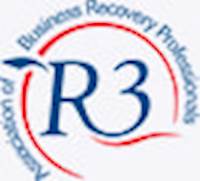You may have submitted your DS01 company strike off application to Companies House and be in the unfortunate position of having the application rejected. There will be reasons for the rejection and there is action you can take, which may lead to an eventual strike off or another solution being sought for your company closure. In this article we explore your options after a company strike off application has been rejected.
What is meant by striking off a company?
Striking off (also known as “dissolution”) is removing a company from the registry of official companies held at Companies House. For more detailed information about the striking off a company process we advise reading our article – “striking off a company”.
Reasons for strike off application rejection and the action to take
The Companies Act 2006, Part 31, Chapter 1 governs voluntary striking off of a company. So, if your application has been rejected it will be because it does not comply with one or more of the requirements of this act. Some reasons for rejection are more serious than others and may mean striking off is not the best solution for company closure. We list below reasons for rejection and the action which can be taken:
1) A creditor has rejected the application
A frequent reason for the rejection of an application is rejection by an outstanding creditor. It is in the interest of a creditor to oppose a strike off request as once a company is dissolved the creditor will no longer be able to collect its debt. For a creditor it is best to keep the company active on the register to be able to continue to pursue the recovery of debts owing.
Overcoming this rejection reason is trickier. There is nothing stopping a second or multiple resubmissions of the DS01 form, but it is likely that creditors will continue to object on every occasion. So, resubmission multiple times as an approach is rarely successful.
A common objector will actually be the UK Government who frequently contest dissolutions where a company has unpaid Bounce Back Loans (BBLS) and Coronavirus Business Interruption Loans (CBILS). Read our blog article – “Dissolving a company may not avoid director scrutiny of unpaid pandemic loans” for further information on this topic.

A creditor is likely to reject an application for a company dissolution.
If creditors are stopping your strike off application, you will need to consider alternative methods to close a company. This is where seeking the services of an insolvency practitioner such as Greenfield Recovery is highly recommended. It may be that a voluntary liquidation is the best way forward, this could be through either a members voluntary liquidation or by a creditors voluntary liquidation.
2) The application was submitted incorrectly
In situations where there were omissions, or the application was submitted incorrectly it’s a simple case of resubmitting the application complete with the required information.
3) The company has actively traded in the last three months
For a company to be struck off it needs to be dormant and non-trading. If an application is rejected because the company has traded recently then another application will need to be made later after at least three months from the last trading activity.
4) The company has changed its name in the last three months
Where a company has changed its name in the last three months the strike off application will be rejected. In this case the application will need to be resubmitted after the three months has elapsed.
5) Application was not submitted by Directors or a majority of Directors
In this case, the application would need to be resubmitted by a Director or by the majority of Directors. Note, if a company has no remaining Directors (perhaps due to death or resignation) a Compulsory (rather than Voluntary) striking off can be sought.

Company strike off applications need to be submitted by the majority of Directors
6) There is an active insolvency process in place
Where a company has active insolvency proceedings against it an application can’t be made to strike the company off. Instead, the insolvency will need to be followed to its conclusion.
7) There is an active scheme of arrangement in place
If as detailed in The Companies Act 2006, sections 895 to 901 there is an active scheme of arrangement in place then the company strike off request will be rejected. A scheme of arrangement is an agreement between creditors and the company for the restructuring of debt
8) Where bearer shares are in issue
Although a rare event, if a company has bearer shares in issue it can’t request strike off. These are where shares are issued but there is no registered shareholder in the register of members. To overcome this the bearer shares issue needs to be resolved prior to resubmitting an application.
Support from Greenfield Recovery
If you are in the position of struggling to close a company then Greenfield Recovery can help. A strike off might be the best approach for your company, if you have insolvency issues though you will need specialist legal advice.
Speak to us here at Greenfield Recovery today on 0121 201 1720 to discuss your circumstances. Our specialist insolvency and legal staff will be able to appraise your situation and craft a perfect resolution for closing your company. Book an appointment by clicking this link or alternatively make an enquiry below.



